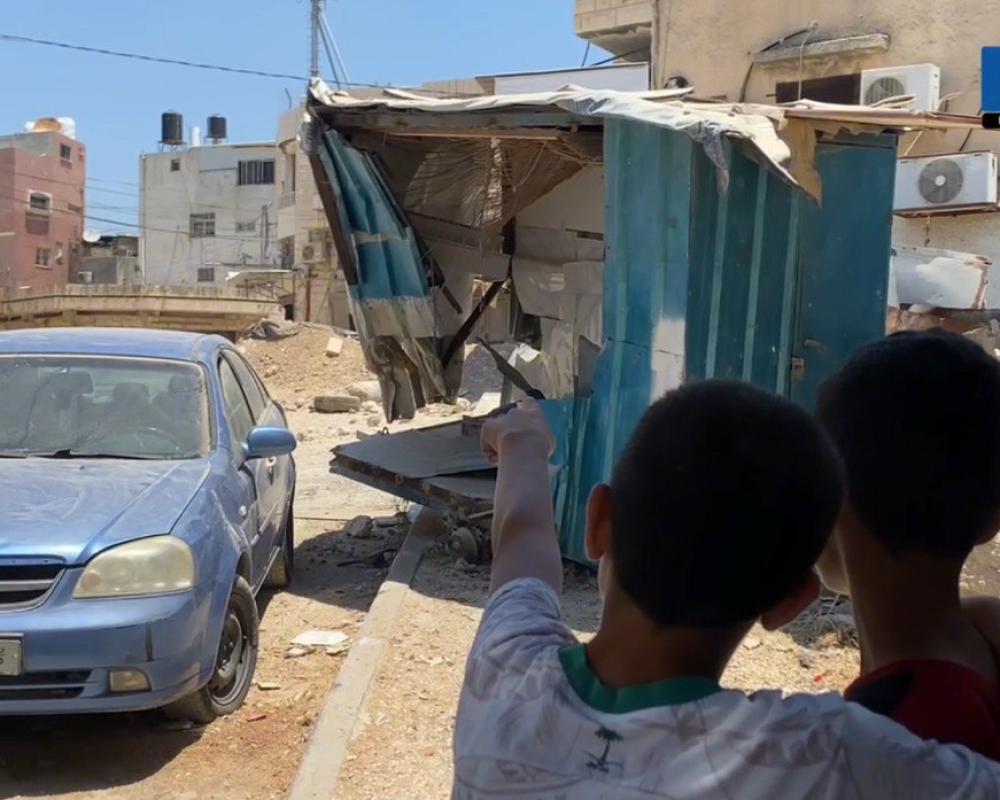
Tulkarm / PNN / By Yara Mansour
In the alleyways of Tulkarm Refugee Camp, silence reigns, broken only by the heavy footsteps of Israeli soldiers. Yet memories, as always, speak louder. In Palestine’s northern camps, distances are not measured in kilometres, but in the weight of trauma carried from one displaced home to another. Between Jenin and Tulkarm, the story of repeated uprooting continues—this time told through a father who took in his daughters fleeing Jenin, only to find himself displaced alongside them once more.
Haj Ibrahim Badirat, displaced from Tulkarm Camp, told PNN that he was forced to flee at the onset of the Israeli military incursion into the camp. “My daughters were already displaced from Jenin. The army stormed Jenin first, and then, shortly after, came to Tulkarm.”
For nearly three months, the family lived in the Al-Sha’rawiya Centre in the town of Atil. “Eventually, we were asked to evacuate that shelter. We had no choice but to find a house to rent,” he said. “We’re living in a rented home now, but the cost is beyond reason. We pay 1,500 shekels a month—plus electricity and water bills. We left our homes behind and still don’t know if they’ve been destroyed. Every day we hear stories, and we live in constant fear.”

For women in displacement, the toll is even greater. Rawaan Hussein, also from Tulkarm Camp, shared her experience of being pregnant while displaced. “I found out I was pregnant four days before the army stormed the camp,” she told PNN. “I was in my third month then; now I’m in my eighth. The pain is doubled—when you’re not in your home, you have no comfort. We can’t afford to visit a proper doctor to check on the baby. The only place available is the UNRWA clinic, where all we get is to hear the baby’s heartbeat. They don’t even have an ultrasound machine.”
Taleb Abu Sreih, another displaced resident of Tulkarm Camp, described the despair he now lives in. “This period felt like our souls left our bodies,” he told PNN. “Displacement is a nightmare—indescribable. We’ve hit a wall. We keep telling ourselves, ‘Be patient, the Yasser family was patient too.’ We’ll return to Tulkarm Camp, even if it’s just to stand on its rubble.”
Abu Sreih added that his house had been destroyed, along with the homes of his neighbours and even his wife’s family. “Where is this all going? What is the end? Should we abandon the camp? Never. We will return to it with our heads held high.”

Najah Badirat, mother of the slain Abdul Badirat and also displaced from the camp, told PNN she visits the town centre daily just to see the faces of her fellow camp residents. “I come here to feel like the camp is still alive,” she said, choking on her words.
Her eyes welled with tears as she recalled her son Abdul—his presence in the kitchen beside her, the floor tiles where his body was laid, the table, the blanket that covered him. “I don’t ask about the concrete,” she said softly. “I miss my son.”

